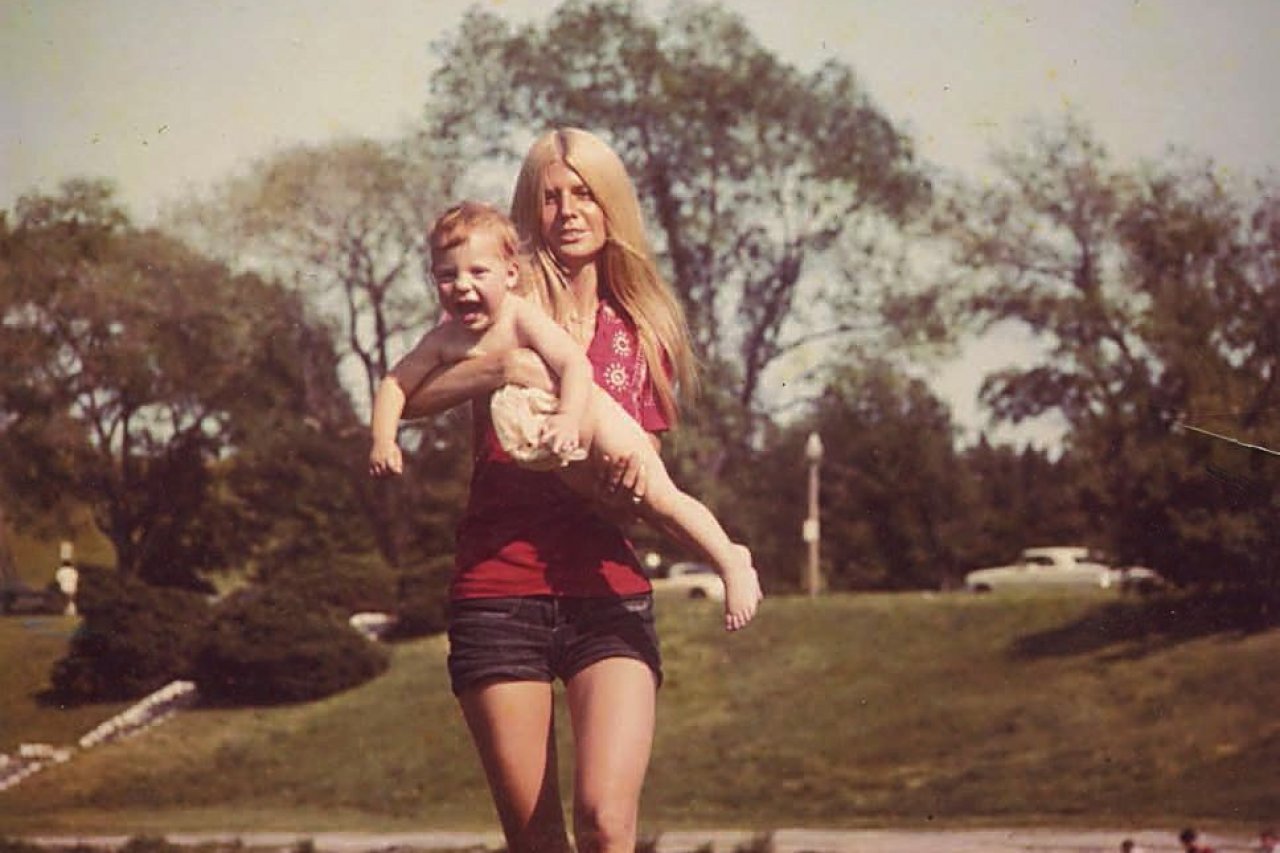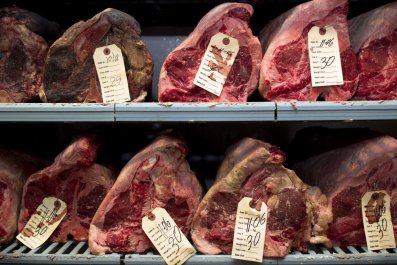When I met Galadrielle Allman years ago through a mutual friend, I was surprised to learn that this woman with watchful, curious eyes, living quietly in a north Berkeley, Calif., house filled with books, was the daughter of rock legend Duane Allman. She seemed more like a graduate student at the nearby University of California.
For as long as I've known her, Allman has wanted to write a book about her father, co-founder of the Allman Brothers and considered by Rolling Stone magazine to be the second greatest rock guitarist of all time, second only to Jimi Hendrix. But she was hesitant to tell family secrets. Delving into her past also made her feel less like his daughter, and more like one of his curious fans. She writes, "It confounds me that I am not alone in loving him and missing him." In the book's intro, she admits, "I dreaded pursuing this story as a reporter would, by asking uncomfortable questions and following every lead.... Wasn't asking my uncle for his memories very like a stranger asking for his autograph? Wanting to know made me feel like everyone else who wants to know. It put me on the outside looking in."
Her desire for information and her drive as a writer helped her overcome her ambivalence. Author Mikal Gilmore, whose brother was the infamous Gary Gilmore, and whose book Shot In the Heart looks into his own dark family history, calls Please Be With Me: A Song For My Father "the most moving music biography I've ever read."
Part memoir, part rock bio, part nonfiction novel, Please Be With Me is structured chronologically, and begins before Duane's birth, when his parents meet. Interviews with members of the Allman Brothers, family, friends and other musicians are quoted, while some interviewees' stories are transformed into scenes, with Galadrielle supplying imagined dialogue and even her subjects' thoughts. This novelistic approach, although risky, makes the book's characters come alive. "I didn't want to rely on quoting people and feeling like it was an extended magazine article," she says. "I wanted it to read with the complexity that fiction can have."
Her book will please some die-hard Allman Brothers fans, featuring never-before-seen photographs and letters, along with gripping accounts of the making of beloved albums such as Clapton's Layla and Other Assorted Love Songs and the Allman Brothers' At Fillmore East. And colorful early stories about Duane, as told by his mother Geraldine, his cousin Jo Jane, and his brother Gregg - all natural storytellers - provide context for Duane's meteoric rise from juvenile rebel to accomplished prodigy working with the best in the music business, including Wilson Pickett, Boz Scaggs and Aretha Franklin.
But among the many things that distinguishes Please Be With Me from other Allman Brothers bios, one of the most important is Galadrielle's attention to the women in the hyper-masculine world of the Allman Brothers. In most books about the band, women are accessories, caretakers, prizes for the men to win - and sometimes the casualties. But seldom do they feel like fleshed-out characters. Alan Paul's newly released oral history of the Allman Brothers, One Way Out: The Inside History of the Allman Brothers Band, makes women's marginality quantifiable. Of the 60 people Paul lists as having interviewed for his book, only two are women: Linda Oakley, the wife of guitarist Berry Oakley, who died a year after Duane in an uncannily similar motorcycle accident; and "Mama Louise" Hudson, the owner of a soul-food restaurant in Macon, Ga., who fed the Allman Brothers for free when they were too poor to pay.
In contrast, Please Be With Me gives women voice, life and central roles in the lives of the musicians. Interwoven in the accounts of Duane and Gregg's early lives are also tales of their mother; Jo Jane, who was like a sister to them; and Donna Roosmann, Galadrielle's mother, whose own coming-of-age tale is presented parallel to that of the man who so dramatically changed her life.
The choice to flesh out the women characters is not merely a feminist corrective. The story Galadrielle wanted to tell was not only her father's, but also the story of the 1960s and its cataclysmic cultural changes - racial, sexual and political. This demanded multiple perspectives. "The first rebel on a Harley the brothers ever knew," Galadrielle writes, "was their mother." And it was Geraldine, a.k.a. "Jerry," who made sure that the brothers, who were playing music in venues they were too young to patronize, joined a music union to protect them from exploitation. Their entry into the world of black musicians on the "wrong" side of town in the segregated South changed Jerry, as well. A product of her time, she wasn't so sure about Floyd Miles, a young, black blues musician who befriended Duane and Gregg and introduced them to the black clubs where they would eventually play as teenagers in Daytona Beach, Fla. She now counts him as one of her dear friends.
It was also important for Galadrielle to tell her mother's story. Please Be With Me, after all, is part memoir, and she was as much shaped by her creative and liberal mother as she was her famous father. The young Catholic schoolgirl from a strict upbringing in St. Louis begins to attend concerts in the 1960s, and the music prompts her to question the way her parents lived. "It became very clear to me," Galadrielle says, "that the strong, feminist-rooted independent woman who raised me was not the person that met my father. She went through her own development, and part of that was going through the sort of cultural revolution that was the music scene in the 1960s. She was seeing and emulating the freedom that the men and the music were bringing home. I saw the distance between how she was raised, in a Catholic family, in a very conservative world, and how she raised me, in essentially a very bohemian, hippie, communal way. Music opened her up. And my father and his confidence and humor and loving her all made that possible."
Although Galadrielle concludes on this positive note, Please Be With Me is filled with dark stories of the treatment of women at the hands of men, including the unceremonious, and some would say cruel, way her father broke up with Roosmann. "I will always identify with the women," she says in the book after recounting ugly stories painful for a daughter to repeat about her father, stories involving groupies, drugs and miscreant behavior. "But I understand that the temptation for a pack of 20-year-old rock stars was impossible to resist."
This territory is particularly fertile ground for a writer, and the pleasure of reading Please Be With Me lies as much in its lyrical prose as in its insider anecdotes. Her passages describing the power of the Allman Brothers' famed long jams mimic, in their fluidity, a similar build-up to an emotional center. Her deft shifts of voice - from her own, to Jerry's, to her father's - reveal that years as a bookworm have paid off. Her descriptions and scenes are vivid, even cinematic. In the intro, she describes, from a child's point of view, what it was like being backstage during a concert by the Allman Brothers, who became even more popular after her father died:
The Brothers played stadiums in the seventies, massive domes of concrete rising like dark castles on the outskirts of town. My mother carried me through the back doors, which were guarded like a fortress by burly guards in satin tour jackets, their arms crossed in front of their chests. She would stick her backstage pass to her blue-jeaned thigh and sail through the gauntlet with a mention of our names. In every city, backstage was the same - a rabbit warren of hallways leading to small gray rooms glowing with fluorescent light. Mom switched me from one hip to the other, then sat my squirming self on a metal folding chair. We waited for what seemed like hours for the band to arrive, picking at trays of cold cuts and digging our hands into iced buckets full of drinks. We kids gobbled handfuls of M&Ms and chased each other around the tight passageways until someone settled us down. Clusters of people dressed in wild finery waited in the hallways: young blondes in hot pants, grizzled guys in leather vests, and moguls in three-piece suits. You could feel how much everyone wanted into the rooms where we waited alone.
In Please Be With Me, we get to enter those privileged spaces with her, and to feel the benefits and the price of that access. When I ask her what's next, after a whirlwind year of finishing her book and helping to produce and write the liner notes for the seven-CD box set Skydog: The Duane Allman Retrospective, she laughs and says that after promoting the book, "I think next I would like to write a novel. It will be a relief to not know and love every character in the story!"


























